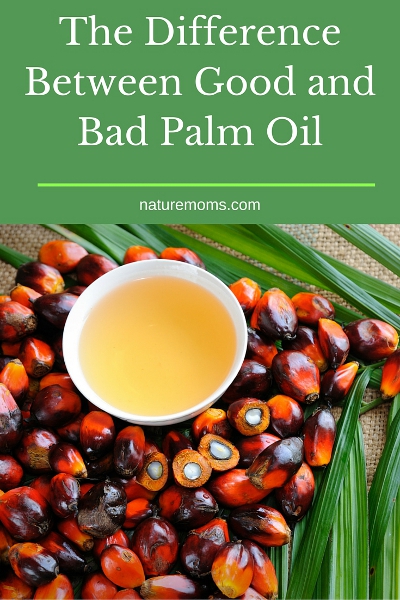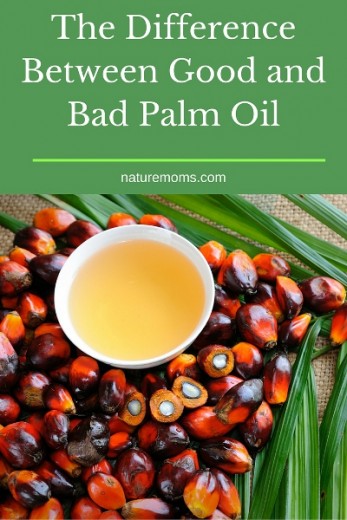 You may or may not be aware of the debate raging about palm oil. If you are pretty savvy about food ingredients and how they are sourced (ethically or no) than you probably already know a great deal about palm oil. If you are new to this journey, you might be asking yourself what is palm oil exactly? It is a big deal? The answer is a resounding yes. Chances are you are already using palm oil in your home and you need to know more about it.
You may or may not be aware of the debate raging about palm oil. If you are pretty savvy about food ingredients and how they are sourced (ethically or no) than you probably already know a great deal about palm oil. If you are new to this journey, you might be asking yourself what is palm oil exactly? It is a big deal? The answer is a resounding yes. Chances are you are already using palm oil in your home and you need to know more about it.
Palm oil is an edible vegetable oil taken from the pulp of the fruits that grow on oil palms. Oil palms only grow in the tropics and 85% of the world’s palm oil is produced in Indonesia and Malaysia on both large-scale plantations and small-scale family farms. It is in about 50% of packaged foods. That is a huge percentage. If you still buy the occasional package of cookies, noodles, ice cream, soap, or cosmetics than you are supporting the palm oil industry and which side you support has some pretty big ramifications.
Why Do We Use Palm Oil?
Okay so you might be wanting to say “Stop right there. If palm oil is controversial than we do we use it at all?” That is a great question. Palm is favored for a variety of reasons. It is has wonderful cooking properties and it maintains its properties, and does not degrade, even under high temperatures. It is smooth and creamy with no discernable smell making it perfect for all types of cooking and baking. It has natural preservative properties which give it a long shelf life and it extends the shelf life of food products. It is high yield crop, making it efficient to grow and harvest. It uses less than half of the land required by other crops to produce the same amount of oil. This makes it the least expensive vegetable oil in the world. Heck, it is even used as fuel for cars and power plants. It is pretty amazing how versatile this oil is.
The Bad News About Palm Oil
The bad news is pretty bad. In some regions of the worlds the palm oil industry has lead to some serious deforestation. Primary forest (forest that was previously untouched) or which housed protected species and biodiversity, was cleared in order to be converted into palm oil plantations. Also in some cases palm oil plantations were erected without consideration or permission from the communities in the area and thus they were responsible for forcibly displacing people from their land. There have also been issues with worker’s rights, fair wages, and safe working conditions. The biggest issue for may though (other than deforestation) is the fact that the conversion of the forests also threatens animals such as orangutans, Sumatran tigers, elephants, and rhino.
Why Can’t We Just Stop Using Palm Oil?
The orangutans! The tigers! The virgin forests! We must stop using palm oil right?!
Well, the answer is not as simple as you think. Replacing palm oil with other types of vegetable oil (such as sunflower, soybean or rapeseed oil) would mean that much larger amounts of land would need to be used, since palm trees produce 4-10 times more oil than other crops within the same space. This means MORE forests would need to be converted for agricultural purposes and more environmental damage would occur. In addition to the fact that replacing palm oil with other types of oil will not be more beneficial for the environment (just the opposite actually) replacing palm oil is not always feasible due to palm oil’s unique properties as a food ingredient. Other oils might go rancid, they are more expensive, and they will not give the products the same texture and taste. This makes switching very unlikely from a business standpoint.
There is also the economic issue. In Indonesia and Malaysia, a total of 4.5 million people earn their living from palm oil production. Stopping the production of palm oil altogether would create significant problems for these people who support their families by working in this industry.
The Good News About Palm Oil
The good news is that there are companies and organizations working to fix these issues surrounding palm oil and we can choose to support those companies who are taking the proper steps to make palm oil more sustainable. In 2008, the Roundtable on Sustainable Palm Oil (RSPO) developed a set of environmental and social criteria which companies must comply with in order to produce Certified Sustainable Palm Oil (CSPO). When they are properly applied, these criteria can help to minimize the negative impact of palm oil cultivation on the environment and communities in palm oil-producing regions.

The RSPO has more than 2,600 members worldwide which represent all links along the palm oil supply chain. They have committed to produce, source and/or use sustainable palm oil certified by the RSPO. The RSPO dictates that no primary forests with high concentrations of biodiversity, endangered species, fragile ecosystems, or culturally important areas can be cleared. They require a reduction in the use of pesticides and fires, fair treatment of workers according to local and international labour rights standards, and the need to inform and consult with local communities before development of any land. Only if they are RSPO certified can a company claim to be making or selling products with sustainable palm oil. All products that meet this stringent criteria carry the RSPO trademark. However, good palm oil only accounts for 21% of all palm oil consumed globally, so that is why we all need to share the story of #GoodPalmOil and make sure that brands and retailers know that we, as consumers, care about this issue and expect them to take action.. And just to let you know why we need to worry about this…worldwide demand for palm oil is expected to double by 2050 to 240 million tons. We need to act now.
For more information and to participate in the debate visit RSPO.
What Can You Do to Demand Sustainable Palm Oil?
At a consumer level, you have an important role to play. You can vote with your dollars and use the power of your purse to encourage companies to increase their societal and environmental responsibility. You can support these efforts by making sure that you only purchase products that contain certified sustainable palm oil. And you can also be vocal in your grocery store and on social media in demanding that your favorite palm oil containing products get certified. Download and print a Shopping Guide that gives more information on RSPO-certified products, as well as a list of some available on supermarket shelves.
You can also help by getting involved with a new campaign from the Roundtable on Sustainable Palm Oil (RSPO) called What’s your food made of?. The campaign features three short fun films of knitted foods which raise awareness of good and bad palm oil. There is a difference and we need to know what that difference is and pursue the more sustainable products.
Disclosure: I was compensated for my participation in this campaign. All opinions are my own.





